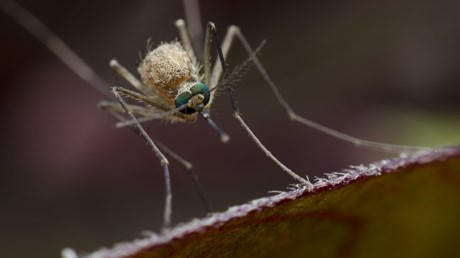When disease vectors are also victims.

I was warned there would be a lot of mosquitoes when I traveled to the northern coast of Alaska to collect soil samples, but nothing could prepare me for the swarms of bugs that darkened the sky above me as I worked. The pages of our field books were littered with insect corpses crushed whenever we closed them. Even though they couldn’t bite through my head net and spray, they still managed to make life pretty miserable. It’s no wonder they can drive caribou seeking relief, like billions of little sheep dogs, into new landscapes.
Relatively speaking, the Arctic gets off easy compared to other parts of the world. Since Arctic mosquitoes do not transmit any known diseases, the worst I could expect from a bite is a minor itch. For half of the world’s population, avoiding mosquito bites is a matter of life and death.
It is the mosquito’s ability to transmit diseases that has earned it the reputation of deadliest animal on earth—a statistic popularized by Bill Gates. Malaria alone infects more than 200 million people a year. Nearly half a million die. Besides malaria, mosquitoes are responsible for spreading dengue and yellow fever, encephalitis, filariasis, West Nile, and increasingly, Zika virus.
To make matters worse, human populations are increasing near mosquito habitats. Combine this with the ease of international travel, and we can expect rare and obscure diseases will continue to make news as they spread around the world.
It’s tempting to ask the extreme questions. BBC asked, “Would it be wrong to eradicate mosquitoes?” In June 2016, Smithsonian reported on new research considering gene editing technology that could, in theory, wipe out mosquitoes. “Should they use it?” …
Source: Christianity Today Most Read